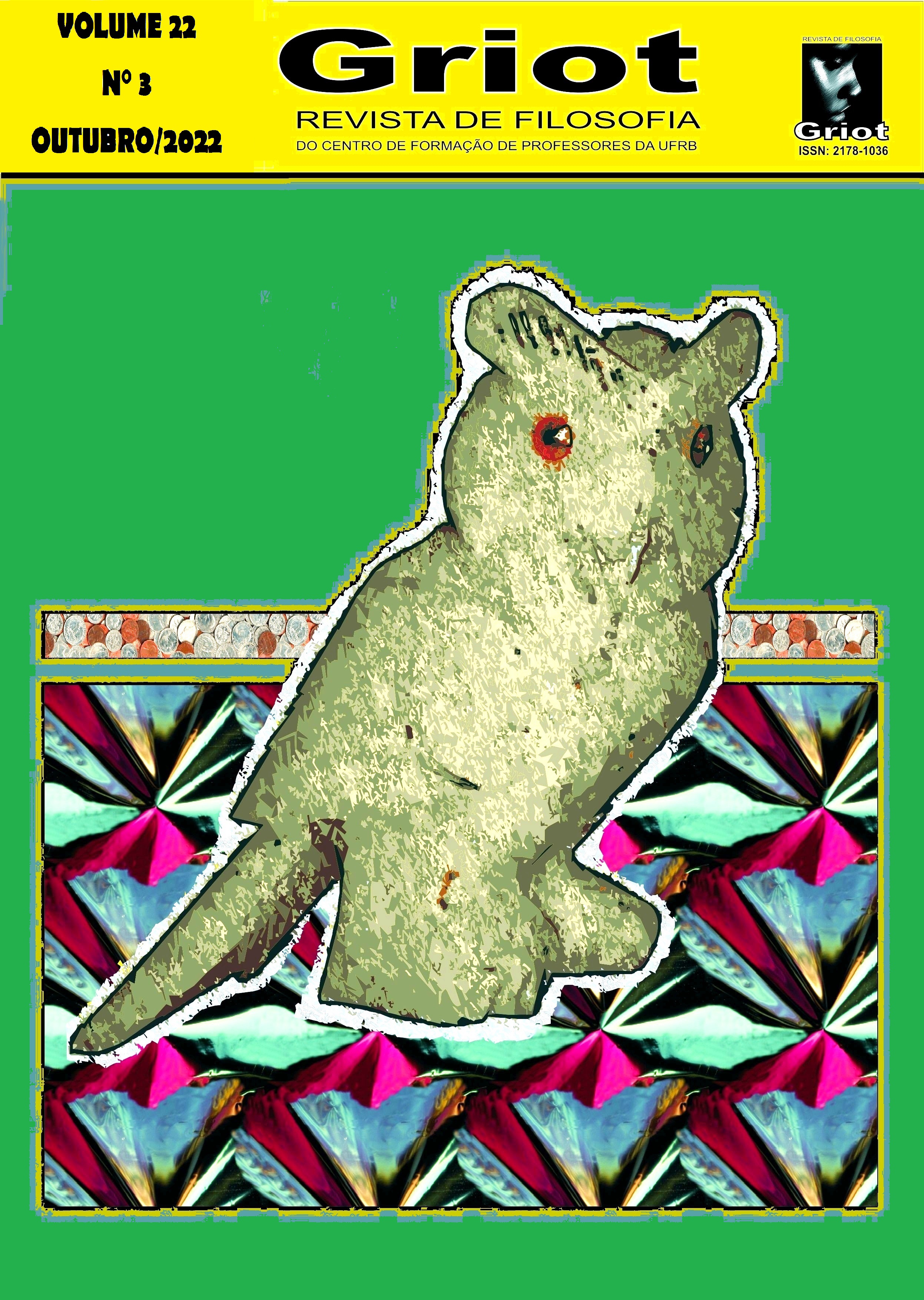Fate and predestination. Nietzschean considerations around the joyful reception of the fact beyond determinisms
DOI:
https://doi.org/10.31977/grirfi.v22i3.3036Abstract
The present work is based on a fundamental theme within the set of Nietzsche's thought: the theme of Destiny. If Fate is seen as something previously decided in relation to the most diverse situations, then Nietzsche's philosophy runs into an aporia, that of having to face the problem of determinism, which touches one of the greatest obstacles of culture: morality. In the moral sphere, everything is ordered and determined. In this sense, the development of this research is oriented towards a deepening of the philosophical implications related to Destiny. Faced with becoming the particular organization of impulses, Destiny loses the sense of predetermination and ready and finished decision on different situations. To what extent does talking about Destiny, within the scope of Nietzschean thought, imply openness to plenitude, beyond all forms of determinism?
Downloads
References
ACAMPORA, Christa Davis. As disputas de Nietzsche. Trad. Peterson Roberto da Silva e Jean Gabriel Castro da Costa. Florianópolis: Editora UFSC, 2018.
BOEIRA, Nelson. Nietzsche. Filosofia Passa a passo. Rio de Janeiro: Jorge Zahar Editor, 2002.
GIACOIA, Oswaldo. Nietzsche & Para além do bem e do mal. Filosofia Passa a passo. Rio de Janeiro: Jorge Zahar Editor, 2002.
GIACOIA, Oswaldo. Nietzsche, O humano como memória e como promessa. 2ª Ed. Petrópolis: Editora Vozes, 2013.
HAYMAN, Ronald. Nietzsche e suas vozes. Trad. Scarlett Marton. São Paulo: Editora Unesp, 2000.
MARTON, Scarlett. Extravagâncias. Ensaios sobre a filosofia de Nietzsche. Col. Sendas e Veredas. São Paulo: Editora Unijuí, 2000.
NIETZSCHE, F. W. Kritische Studienausgabe. Herausgegeben von Giorgio Colli und Mazzino Montinari. Berlin: Verlag de Gruyter, 1999.15 Bd.
NIETZSCHE, F. W. Sämtliche Briefe: Kritische Gesamtausgabe Briefwechsel KGB. Herausgegeben von Georgio Colli und Mazzino Montinari. Berlin: Walter de Gruyter, 1986. 8 Bd.
NIETZSCHE, F. W. O nascimento da tragédia. Trad. Paulo César de Souza. São Paulo: Companhia das Letras, 1992.
NIETZSCHE, F. W. A gaia ciência. Trad. Paulo César de Souza. São Paulo: Companhia das Letras,
NIETZSCHE, F. W. Assim falou Zaratustra. Trad. Paulo César de Souza. São Paulo: Companhia das Letras, 2011.
NIETZSCHE, F. W. Crepúsculo dos Ídolos. Trad. Paulo César de Souza. São Paulo: Companhia de Bolso, 2017.
NIETZSCHE, F. W. Ecce Homo. Como alguém se torna o que é. Trad. Paulo César de Souza. São Paulo: Companhia das Letras, 1995.
RUBIRA, Luís. Nietzsche: do eterno retorno do mesmo à transvaloração de todos os valores. Col. Sendas e Veredas. São Paulo: Editora Barcarola, 2010.
RUBIRA, Luís. Amor Fati. In: Dicionário Nietzsche. Col. Sendas e Veredas. São Paulo: Edições Loyola, 2016. PP. 106-111.
Downloads
Published
How to Cite
Issue
Section
License
Copyright (c) 2022 Adilson Felicio Feiler

This work is licensed under a Creative Commons Attribution 4.0 International License.
The authors who publish in Griot: Revista de Filosofia maintain the copyright and grant the magazine the right of first publication, with the work simultaneously licensed under the Creative Commons Attribution 4.0 International License, allowing sharing and adaptation, even for commercial purposes, with due recognition of authorship and initial publication in this journal. Read more...









































































